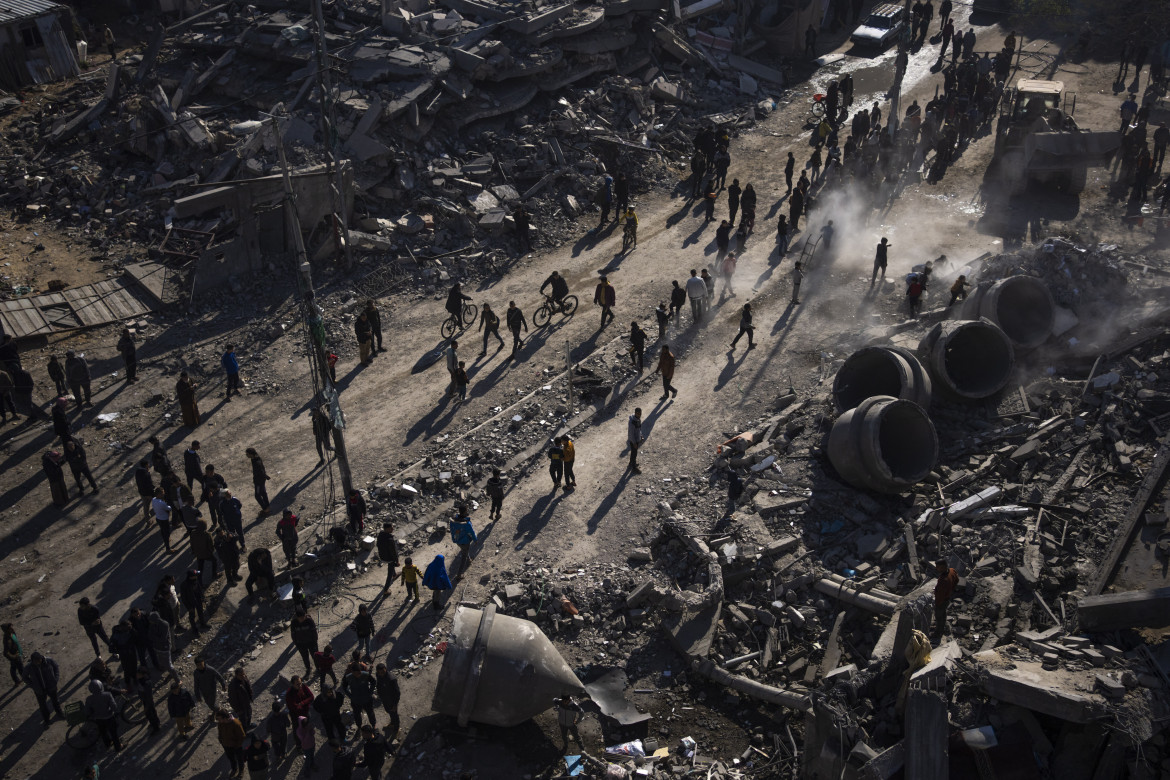Interview
Al Jazeera journalist recounts his escape to Italy amid ‘violent and continuous’ airstrikes
Journalist Safwat Kahlout on his escape from Gaza: ‘We had close brushes with death several times, in Gaza City, Deir al Balah and Rafah. Bombs were falling right next to us and we knew our lives were hanging by a thread.’

A few days ago, Safwat Kahlout, a journalist and producer for Al Jazeera, managed to get out of Gaza thanks to his residence in Italy. Thanks to the help of an Italian foundation and the support of friends, he has settled with his family in a small village in the hills, a few kilometers from Terni.
“Now we feel safe and we’re trying to overcome the trauma we have suffered, but our thoughts are with our relatives in Gaza and all the Palestinians who remain under the falling bombs,” Kahlout tells us. We spoke with him to collect his testimony about what he experienced.
For 18 years, Gaza has been subjected to Israeli military operations that have left thousands dead and wounded. This time, however, the Strip is at risk of total destruction.
Right away, this offensive was different from previous ones. Because the Israeli army ordered us to go away from northern Gaza, abandon our homes and go south. This was a shock to all of us. Abandoning our homes is a national trauma that Palestinians have been carrying with them since 1948. The air strikes were violent and continuous, especially in the first weeks (of the Israeli offensive). I remember that during the night, we would hug each other tightly so that if it came to it, we would die together. Then we escaped to Deir al Balah (in central Gaza, n.ed.) where my family has a small apartment. The escape was an adventure in itself. I consider myself lucky because I own – or, rather, I used to own – a car and a house where I could take refuge, while most of the people in northern Gaza had nowhere to go. And it was everyone for himself.
Deir al Balah was only the first stop.
Yes, because shortly afterwards we were forced to flee to Rafah. Al Jazeera told us to get to a three-story building and join the families of other company employees. Then, after occupying and destroying most of Khan Yunis, Israel announced that it would also attack Rafah. So we went back to Deir al Balah. Bombs were falling everywhere anyway; there were no safe places for anyone. In the previous weeks, I had applied to leave with my family. I didn’t want to leave Gaza, but I wanted to save my wife and children and take them to Italy. At the end of March, we all got out. We reached Cairo, and from there we left for Rome. I realize that I am privileged. The other inhabitants of Gaza are living in desperate conditions, without food, without homes. So many children have been left alone; other Palestinians have lost their families to the bombs, and others have been seriously wounded and cannot be treated in Gaza.
Which were the most difficult days?
We had close brushes with death several times, in Gaza City, Deir al Balah and Rafah. Bombs were falling right next to us and we knew our lives were hanging by a thread. Then, we had to deal with the lack of food. There was nothing in the stores and the food was very expensive on the black market. I was very afraid there would be no medicine for my son, who has to take a blood thinner every day. I spent whole days looking everywhere for it.
And you also had to work, taking very high risks. Over 100 journalists and news workers have been killed in Gaza.
It was an exceptionally difficult six months of work, during which several of our journalists ended up in the crosshairs. You know the case of my bureau chief, Wael Al-Dahdouh, who lost his wife and several children in two airstrikes. As a producer, I had to deal with a huge military offensive with enormous consequences while Al Jazeera’s office in Gaza had a limited number of journalists available. In the middle of a war, I had to identify and recruit independent colleagues who could lend a hand, often risking their lives. I myself had to deliver live reports in Arabic and English. All this while the Palestinian telephone networks were blocked (by the Israelis) or had ceased to function due to the lack of diesel fuel for the autonomous generators.
Al Jazeera has done crucial work in recent months. However, Israeli Prime Minister Netanyahu considers you an enemy TV station with links to Hamas and intends to use a newly-passed law to shut down your headquarters in Jerusalem.
There are always those who are afraid of the truth, and Al Jazeera, who is showing it every day with its reports and live broadcasts, has spread important information about what is happening in Gaza. Israel’s intentions are clear. However, there are so many in the world who no longer believe the Israeli narratives. Even ally countries (of Tel Aviv) are no longer giving full credence to the Israeli versions of events. The day the international media will be able to enter Gaza, it will be even more evident that our work has been professional and accomplished with courage and passion, in the name of informing the public.
Originally published at https://ilmanifesto.it/ho-lasciato-la-mia-gaza-distrutta-e-disperata on 2024-04-10
